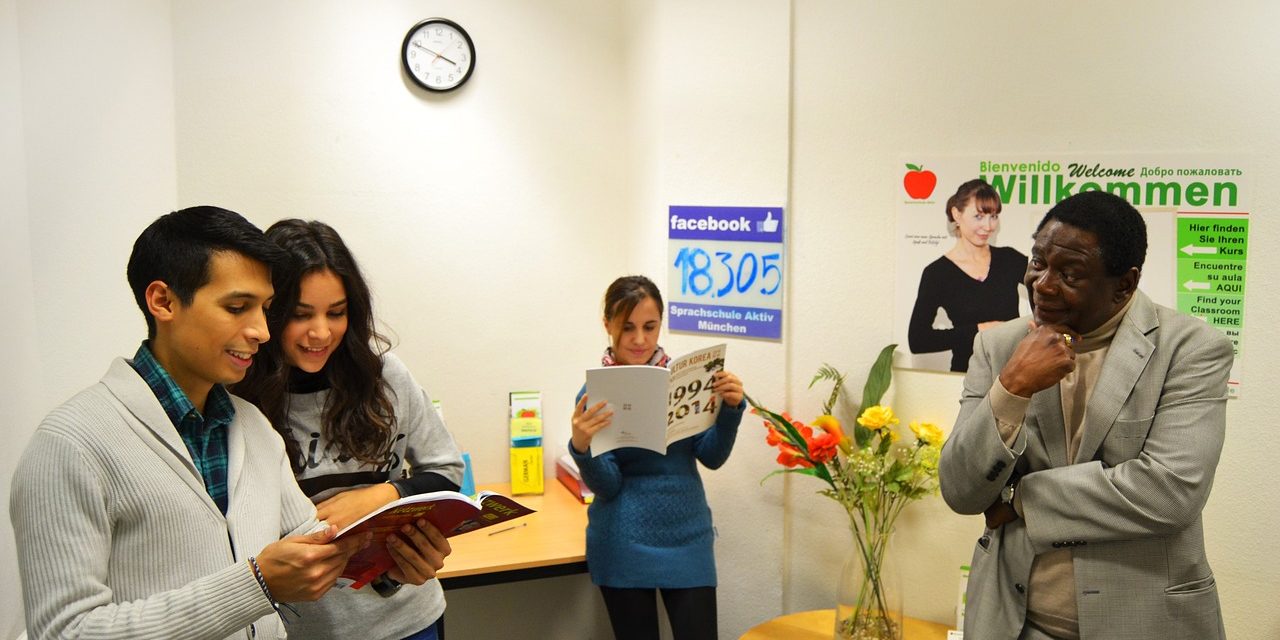by Terry Barakat
How can we get our international students to interact with Americans and other speakers of English in authentic situations? At the English Language Institute of Missouri State University (ELI of MSU), this is an especially poignant question because the ELI building is located in downtown Springfield, a few blocks from the main campus. So, the internationals in our programs have to make an effort to put themselves in main campus situations, or we need to make sure to facilitate events.
The ELI has built co-curricular relationships with professors and instructors to facilitate just such opportunities. One example of this occurred in April of 2017. Our five EAP Level 6 Graduate Capstone students, who are from Mongolia, China and India, spent a morning with two different sections of psychology majors in their PSY 411-Psychology of Diverse Populations class, taught by Professor Adena Young-Jones. The description of this course in the 2017 MSU course catalog is:
“Capstone course reviewing research and theory in social cognition, biological bases of behavior, development, individual differences, and psychopathology as they apply to ethnicity, sexual orientation, gender, language, exceptionality, aging, privilege/disadvantage, and other aspects of diversity. Similarities and differences in human thoughts and behaviors will be evaluated to better understand individual and group outcomes.”
Here are the discussion topics we prepped both sets of students for:
Icebreaker:
- How/when did you learn English?
- What are your plans after completing the ELI program?
- Why did you choose psychology as a major?
- What career do you hope to have with this major?
Talk about social and cultural norms in the U.S. and your country:
- Greetings
- School experiences
- Social media sharing practices
- How does one find a marriage partner?
- Family life—How much of the nuclear and extended family live together?
- What happens to the aging population? Where do they live? Who cares for them?
- Definitions of beauty / fashion / modesty
- Gender equality
- Homosexuality
- Safety
- Healthcare
- Homelessness – how are the homeless treated?
- What is the definition of freedom?
Beginning with the first section of PSY 411 at 9:30 am, the five ELI students each gathered in a circle of desks with a group of 4-5 psychology students for 20 minutes, then rotated to the next group for the same amount of time until they had met with all of the class. They followed this same procedure for a second section of the PSY 411 class in the later morning until about 12:15 pm.
In the first round, all of the students were fairly subdued yet engaged, and the topics were covered at superficial levels. However, as the rotations continued and affective factors improved, discussions deepened and became lively. When the second section of students arrived and the process began again, the ELI internationals were hosting their groups like they were Jimmy Fallon, cracking jokes and leading the discussions like experts. By the end of the second section class, Facebook connections were being exchanged and a group picture was insisted upon.
The feedback from the internationals was that this was one of the best activities they had ever done, and the psychology students wanted to know how soon they could get copies of the pictures. Bayar from Mongolia said, “Teacher, if I did this every day, I would speak English already!” Mission accomplished.








